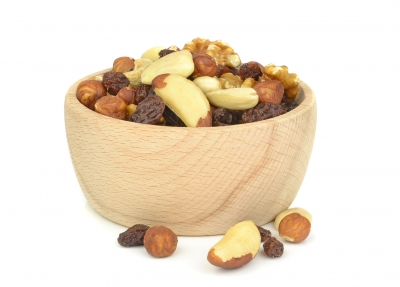Selenium and Heart Disease: Should you supplement selenium?
 Selenium is a trace mineral found in soil and naturally present in many foods.
Selenium is a trace mineral found in soil and naturally present in many foods.
The recommended dietary allowance for selenium is the same for men and women at 55 micrograms daily for anyone 14 years of age or older.
Selenium plays a critical role in reproduction, metabolism, DNA synthesis, infection, and protection from oxidative damage.
Selenium and Heart Disease
A component of selenium works to prevent the oxidation of cholesterol particles, decrease inflammation, and prevent platelet aggregation.
This function of selenium led researchers to investigate whether or not selenium supplementation can be used to reduce cardiovascular disease.
Research resulted in conflicting results. Some research found people with lower selenium levels to have a higher risk of heart disease. Other research found there to be no connection and some even indicated high selenium levels were associated with an increased heart disease risk.
Current research does not support supplementing selenium to reduce heart disease risk. More research is needed.
Selenium Sources
Below are some food sources of selenium.
Brazil nuts, 544 mcg per serving
Yellowfin tuna, 92 mcg per serving
Sardines, 45 mcg per serving
Shrimp, 40 mcg per serving
Enriched macaroni, 37 mcg per serving
Steak, 33 mcg per serving
Cottage cheese, 20 mcg per serving
Brown rice, 19 mcg per serving
Oatmeal, 13 mcg per serving
Baked beans, 13 mcg per serving
Spinach, 11 mcg per serving
Whole wheat bread, 11 mcg per serving
Yogurt, 8 mcg per serving
White bread, 6 mcg per serving
Selenium Deficiency
Most Americans consume adequate amounts of selenium daily, with average daily intake at ~108 mcg.
People at risk for selenium deficiency include those undergoing kidney dialysis, which removes selenium from the blood and those living with HIV.
Selenium Toxicity
Consuming too much selenium can result in symptoms, such as garlic odor breath, a metallic taste in the mouth, and hair and nail loss or brittleness.
Additional symptoms include nausea, diarrhea, skin rashes, fatigue, irritability, skin lesions, and nervous system abnormalities.
Selenium toxicity can be caused by regular consumption of Brazil nuts which contain high levels of selenium and from improperly formulated over-the-counter supplements. Symptoms of selenium toxicity are more severe, including respiratory distress, heart attack, tremors, and kidney failure.
The tolerable upper level intake for selenium has been set at 400 mcg per day.
While supplementing selenium is not recommended for preventing heart disease and lowering cholesterol levels, there are many other steps you can take to reduce your risk. Access my free e-course How to Lower Cholesterol in 8 Simple Steps here.
All the best,
Lisa Nelson RD
Health Pro for HealthCentral
References:
Flores-Mateo G, Navas-Acien A, Pastor-Barriuso R, Guallar E. Selenium and coronary heart disease: a meta-analysis. Am J Clin Nutr 2006;84:762-73.
Xun P, Liu K, Morris JS, Daviglus ML, He K. Longitudinal association between toenail selenium levels and measures of subclinical atherosclerosis: the CARDIA trace element study. Atherosclerosis 2010;210:662-7.
Bleys J, Navas-Acien A, Guallar E. Serum selenium levels and all-cause, cancer, and cardiovascular mortality among US adults. Arch Intern Med 2008;168:404-10.
Image courtesy of Mister GC at FreeDigitalPhotos.net



